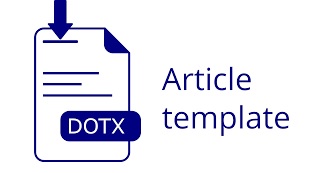Penerapan E-Government dalam Layanan Administrasi Kependudukan dan Perizinan di Daerah Terpencil : Evaluasi Keberhasilan dan Kendala
DOI:
https://doi.org/10.30656/sawala.v.13.i1.9829Keywords:
E-government, layanan publik, daerah terpencil, administrasi kependudukan, perizinan.Abstract
The implementation of e-government has become a global trend to enhance the efficiency, transparency, and accessibility of public services. In Indonesia, e-government is governed by the Sistem Pemerintahan Berbasis Elektronik (SPBE), emphasizing the digital transformation of public services, including population administration and licensing. This study aims to evaluate the success and challenges of e-government implementation in remote areas, focusing on the infrastructure, human resource capacity, and public adoption. The research utilizes a systematic literature review (SLR) methodology to synthesize findings from relevant studies over the past decade. The results indicate that while e-government has improved efficiency and transparency in many regions, significant challenges persist, such as limited infrastructure, low digital literacy, and insufficient training for public officials. These findings emphasize the need for comprehensive strategies to address these challenges, including strengthening digital literacy, equitable infrastructure development, and increasing public awareness of e-government benefits. This study provides a framework for improving the effectiveness and inclusivity of e-government in remote areas of Indonesia.
References
Hariyati, A. M. S., Nurayuni, I., Sa'diyah, I. S., Herawati, A. R., & Kismartini, K. (2022). Implementasi E-Government dalam Pelayanan Publik (Studi Kasus Penyelenggaraan Pelayanan KTP Elektronik di Kecamatan Pulomerak). Jurnal Manajemen Dan Ilmu Administrasi Publik (JMIAP), 4(3), 203-208.
Heriyanto. (2022). Urgensi penerapan E-Government dalam pelayanan publik. Musamus Journal of Public Administration, 67–75.
Juliarso, A. (2019). Analisis implementasi E-Government di Kabupaten Ciamis. Journal of Regional Governance and Policy Studies, 7(1), 12–21.
Muliawaty, L., & Hendryawan, S. (2020). Peranan E-Government di Mal Pelayanan Publik Sumedang. Journal of Government Services and Innovation, 9(4), 34–41.
Nurita, R. F. (2016). Penerapan Layanan E-Government Dalam Perwujudan Good Governance Di Pemerintah Kota Malang. Jurnal Cakrawala Hukum, 7(2), 238-246.
Oktavya, A. A. (2015). Penerapan E-Government di KPP Pratama Kota Bontang. Journal of Tax Administration and Policy, 3(2), 45–53.
Pangemanan, S. E., et al. (2024). Penerapan E-Government dalam layanan administrasi kependudukan di Manado. Journal of Public Sector Innovations, 12(1), 78–88.
Pertiwi, A., Dema, H., Mustanir, A., & Anugrah, E. (2021). Penerapan E-Government Dalam Mewujudkan Transparansi Tata Kelola Pemerintahan Desa (Studi Pada Pemerintahan Desa Bulo Timoreng). PRAJA: Jurnal Ilmiah Pemerintahan, 9(3), 130-139.
Rachmad, Y. E., Ilham, R., Indrayani, N., Manurung, H. E., Judijanto, L., & Laksono, R. D. (2024). Layanan Dan Tata Kelola E-Government: Teori, Konsep Dan Penerapan. PT. Green Pustaka Indonesia.
Shafira, A., & Kurniasiwi, A. (2021). Implementasi E-Government di Kabupaten Kulon Progo. Journal of E-Governance and Development, 10(2), 22–30.
Syafriyani, I., & Zaituna, Y. P. (2018). Penerapan E-Government di BKPSDM Kabupaten Sumenep. JPSI (Journal of Public Sector Innovations), 3(1), 28–34.
Trisudarmo, R. (2022). Penerapan Metode Prototype dalam Sistem E-Government pada Pelayanan Administrasi Kependudukan. Jurnal Informatika dan Teknologi Pendidikan, 2(2), 64-71.
Tryanti, W., & Frinaldi, A. (2019). Efektivitas Implementasi E-Government Dalam Pelayanan Kependudukan Di Dinas Kependudukan Dan Pencatatan Sipil Kota Padang. Ranah Research: Journal of Multidisciplinary Research and Development, 1(3), 424-435.
Downloads
Published
License
Copyright (c) 2025 Regina Argianti, Dede Sri Kartini

This work is licensed under a Creative Commons Attribution-NonCommercial-ShareAlike 4.0 International License.








